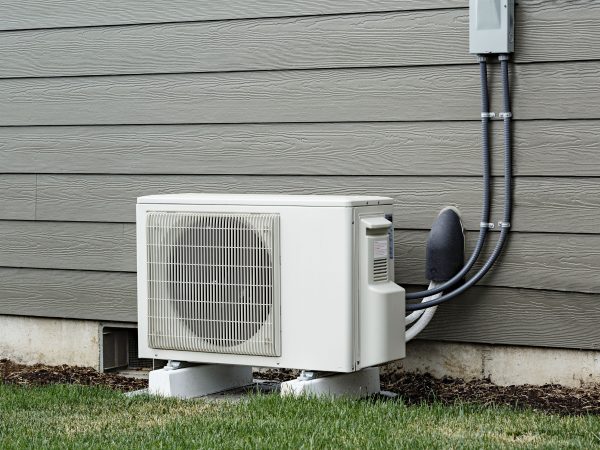A commercial heat pump is a smart, safe, and cost-effective option for optimal temperature control. This is especially important here in New England where the weather is so volatile.
Heat pumps move heat into and out of a building, between air-handling units and outdoor radiators. The pump pressurizes liquid refrigerant to heat it up, then pumps it indoors and circulates it throughout the heating system. Voila! Warmth in the winter. The depressurized refrigerant produces a cooling effect.
You want your employees to be comfortable, your inventory to be safe, and your business to operate smoothly regardless of whatever Mother Nature has in store weather-wise. Heat pumps offer the stability you are looking for. But before you run out and purchase one, here are 5 key things to keep in mind:
1. There are different types. Air-source heat pumps transfer heat from outside a building to the inside. Ground-source (or geothermal) heat pumps use the consistent underground temperatures (and require a trench or a well) to transfer heat.
2. Air-source heat pump technology has come a long way. Formerly, it couldn’t stand up to sub-zero temperatures. That is no longer the case, so they have become increasingly popular in colder regions like the Northeast. If you’re only looking to heat or cool a single room, choose a split unit. To distribute heat or cool air throughout an entire facility, you will need a central unit.
3. Every heat pump comes with a measurement called the Heating Seasonal Performance Factor (HSPF). This tells you how effective the unit is, and what the cost-savings will be. The closer the HSPF number is to 10, the bigger bang for your buck. The minimum allowable HSPF per heat pump is 7.7 for units manufactured after 2005, and 6.8 before that.
4. Heat pumps should be installed and maintained by a trained and experienced professional for safety, efficiency, and performance. They can also recommend the proper upkeep and preventative maintenance schedule to protect your investment.
5. Heat pumps are energy efficient and could qualify for money-saving incentives or rebates. Doing your homework ahead of time can add up to savings. For example, National Grid offers up to $500 for energy efficient air-source heat pumps that are installed by a licensed contractor. The Massachusetts Clean Energy Center outlines a list of incentives for air-source and geo-thermal heat pumps.
If you’re looking to keep your business up and running regardless of the weather, a commercial heat pump is a smart place to start. Conduct some research, contact a trusted professional, and get protected.


